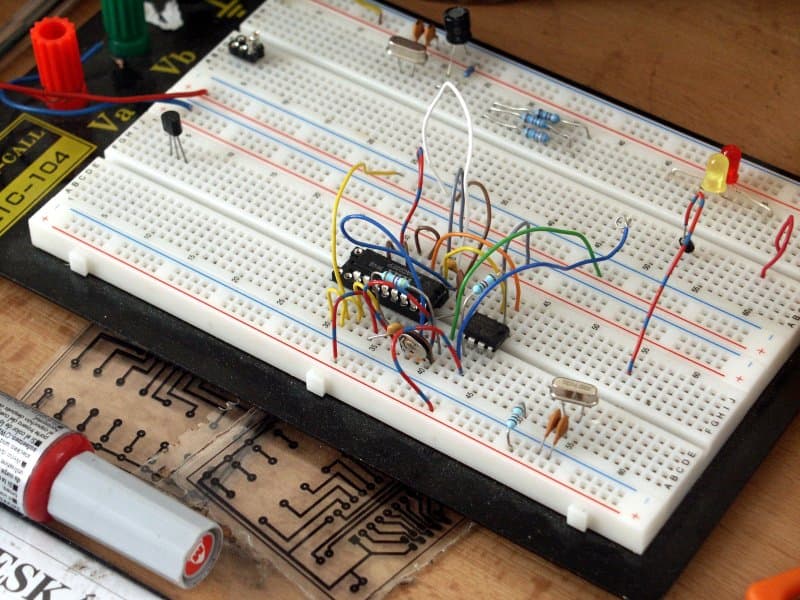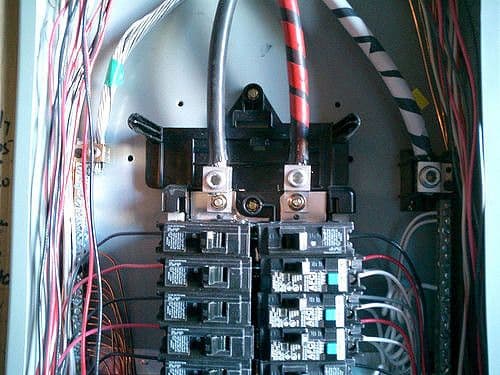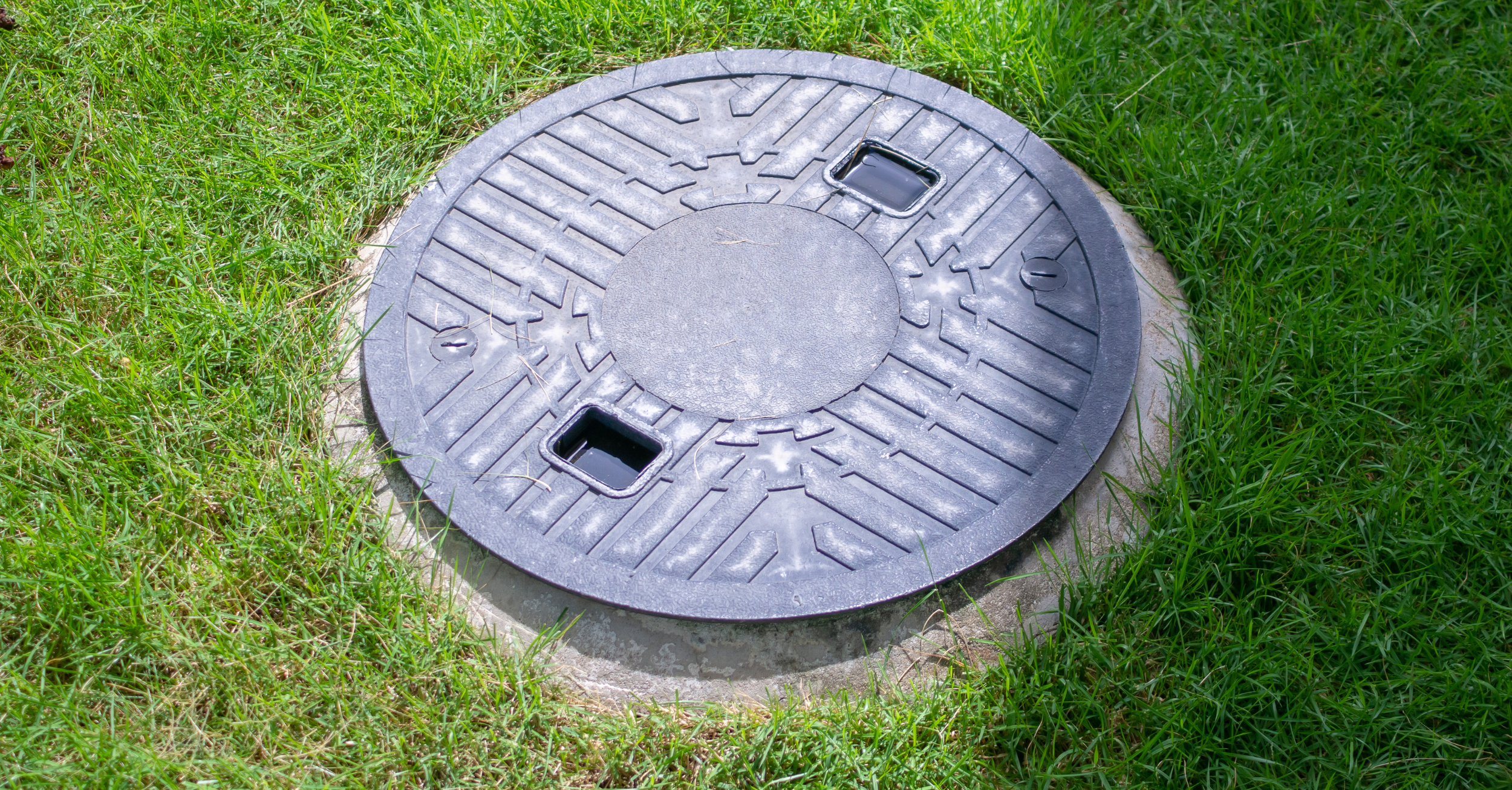Are you looking for a contractor?
Submit our quick form and get quotes now!
Table of Contents
4 min read
The Difference Between Fuses and Circuit Breakers


4 min read
The Difference Between Fuses and Circuit Breakers
Renovation tipsThe Difference Between Fuses and Circuit Breakers
Although hidden behind the scenes, both fuses and circuit breakers run the central electrical operations while they serve to protect your home as well as your family. Both work to defend against an overloaded electrical circuit by interrupting the flow of electricity.
However, their interpretations vary greatly, and understanding their differences for interrupting power is fundamental to know the advantages and disadvantages of having either in your home.
How do Fuses Work?

Source : Flickr, Richard
A fuse is made up of a piece of metal that melts when overheated and works on the electrical and thermal properties of the conducting material. Fuses are quicker at interpreting the flow of power than a circuit breaker. However, while circuit breaks can simply be reset, fuses are one-time-use and need to be replaced after they melt.
The type of fuse used will depend on whether the fuse is being used in a residential or commercial environment. The most common fuse consists of a metal or wire filament enclosed in a glass or ceramic and metal casing. In your home, fuses can be found in the central fuse box.
When all is well with your home's electricity flow, the fuse allows power to pass unobstructed, moving across its filament and between circuits. If there is too much power heading towards a source, the filament will melt to stop electricity from flowing. Unfortunately, the filaments in common fuses melt very easily so any surge in power is quickly halted. Luckily, there are different types of voltages and ratings that can take on different capacities of electricity.
How do Circuit Breakers Work?

Source : Flickr, Todd Lappin
A circuit breaker is a multiple-use device working on the electromechanical principles and has two methods of operation. It either operates with an electromagnet (solenoid) or a bi-metal strip. In both cases, the design is the same: when turned on, electrical currents pass through the breaker from a bottom to an upper terminal across the solenoid or strip. When a current is too strong, reaching levels that are unsafe, the magnetic force of the solenoid activates the metal lever within the switch mechanism, breaking the electrical current.
Unlike fuses, which melt and must be replaced, the circuit breaker can be reconnected by turning the switch back on. This switch action is also convenient if you're planning to work on wiring and need to isolate a part of the home's electricity as a result.
A circuit breaker can also perform a ground fault circuit interrupter (GFCI) which is a function that can prevent electric shock and is particularly useful in rooms such as the bathroom or kitchen where electrocution can be risky.

Fuses VS Circuit Breakers
The advantages and disadvantages of choosing between a fuse and a circuit breaker are wholly dependent on how they will be used.
Fuses are initially the inexpensive method and can be found at your local hardware store. They are very quick to react, and thus, offer protection to delicate electronic devices. However, if a circuit is prone to surges, fuses will blow regularly and this will lead to frequent replacement.
Replacing a fuse can be challenging, as it needs to be performed immediately and this is not always possible. Also, replacing a fuse yourself needs to be done carefully, including paying special attention to the correct voltage or current rating required. Additionally, any exposed electrical connections can be a danger to someone not trained in wiring electronics.
The circuit breaker's most important advantage is how easily it can be reset, as it is usually initially clear which switch has been tripped. Obviously, flicking a switch doesn't require someone with an electrical engineering background to complete, so this option is safer for this reason.
A further reason why a circuit breaker is much safer for the homeowner is that there is little possibility of choosing the incorrect fuse rating. The disadvantages to using a circuit breaker include both size and cost.
They are far larger and more expensive than fuses to install, maintain and repair. Further, circuit breakers do not react as quickly as fuses, and thus, can damage appliances and electronics.
Keep in mind when weighing out the pros and cons of these two that they are not always interchangeable! If you're considering installing one or the other, it is recommended that you get a professional opinion regarding which one might be right for your home.
Disclaimer: All tasks that touch on electricity are very risky and should be completed under the safest conditions. Additionally, in certain parts of Canada, only certified electricians are allowed to do this type of work. Please check before you do any electrical work yourself.
Read our article to know how to reduce electricity consumption.
Get 3 renovation quotes from qualified electricians to fix your electrical panel
RenoQuotes.com will put you in contact with 3 reliable electricians to fix your electrical panel. Fill in the form on our homepage (it only takes a few minutes), and you will receive quotes from trusted professionals.
Dial 1-844 828-1588 to speak with one of our customer service representatives
Last modified 2023-11-07
Looking for something else?
Related articles
The latest industry news, interviews, technologies, and resources.

N/A • 07 Nov 2023
Buying a property with a prospective house in mind is a big deal. This will be both an important and complex decision in any individual’s life as this kind of commitment takes an ample amount of research, time and money.

N/A • 07 Nov 2023
Our homes are complex systems that are multifunctional and multi-faceted with a lot of various parts. Thus, it is important for our homes to run smoothly and efficiently like well-oiled machines. All machines need energy to operate, and as most homeowners know, our homes consume a large amount of energy annually.

RenoQuotes.com • 19 Apr 2024
Thinking of having a septic tank installed or the one you currently own changed? As you can imagine, this is a considerable expense and there are several costs associated with it.

Christime Simard • 07 Nov 2023
Have you decided to change your floor covering and your choice fell on ceramic? Regardless of the specific tile pattern that caught your attention, you will need to purchase grout.

Léa Plourde-Archer • 07 Nov 2023
Ceramics look beautiful in almost any home, whether used as a material for the kitchen backsplash or as a beautiful mosaic accent piece on a wall. This material is versatile, low-maintenance, sturdy and with an excellent lifespan if looked after correctly. Another place a tile floor is commonly found is in the bathroom. If you already have one installed, then you’re one step ahead of us.